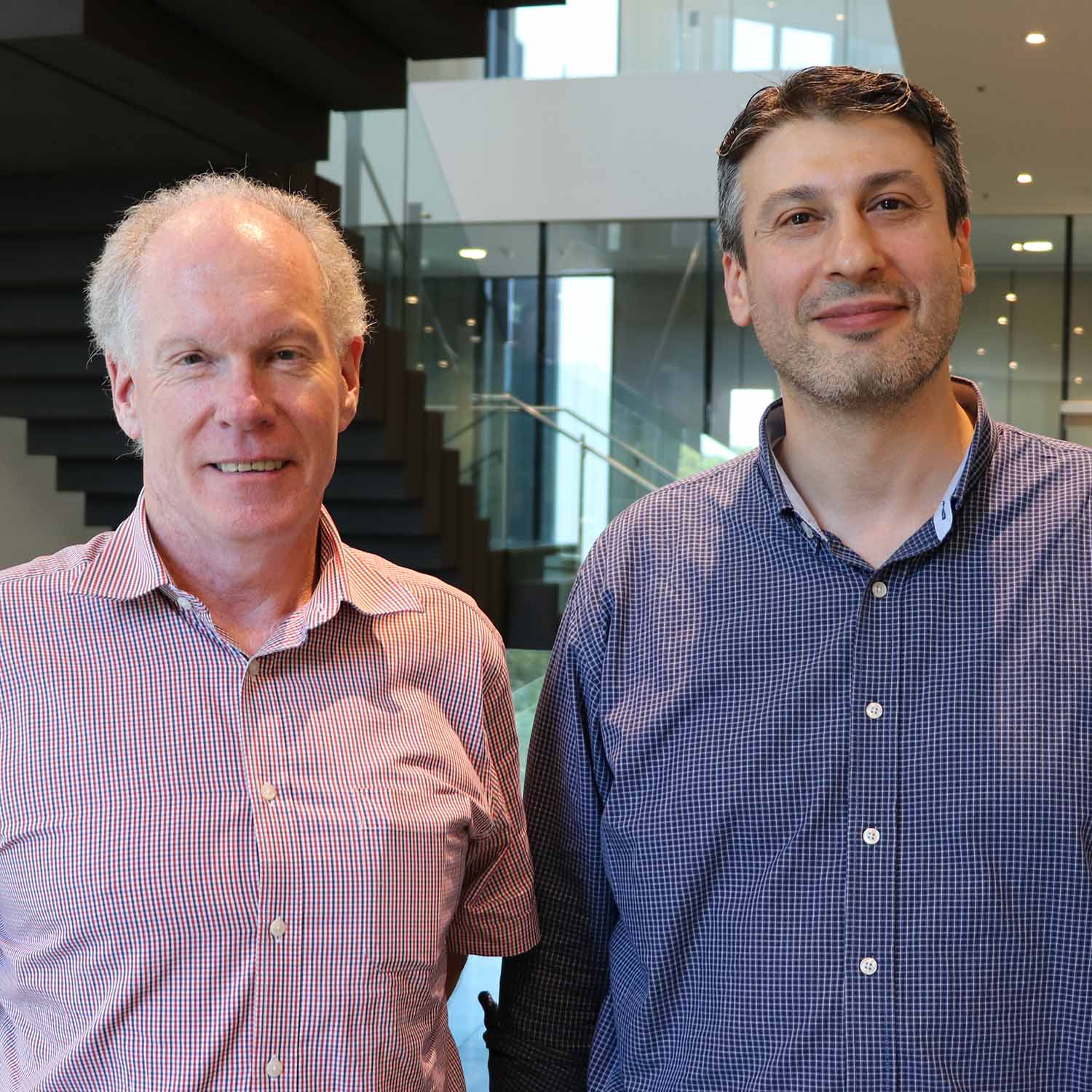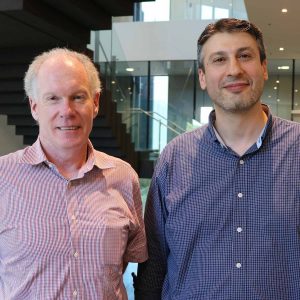Funding Supports MS Research on Epigenetics and Fatigue in Australia
Written by |

Professor Rodney Scott and Associate Professor Saadallah Ramadan. Photo credit: The University of Newcastle
Australian researchers from the University of Newcastle and the Hunter Medical Research Institute (HMRI) have received funding for two projects that will study unexplored areas in multiple sclerosis (MS).
The projects, investigating the role of epigenetic differences in MS severity and treatment against MS-derived fatigue, received $211,000 AUD (about $151,300 U.S.) and $25,000 AUD (about $18,000 U.S.), respectively.
Epigenetics is a mechanism that controls genes and their activity without changing the actual DNA sequences (or gene codes). The process is important in the development of cells and organisms because it controls cell type-specific gene activities.
Increasing evidence suggests that epigenetic gene regulation can be influenced by external factors, such as exposure to sunlight or food intake.

Professor Rodney Scott and associate professor Saadallah Ramadan. Photo credit: The University of Newcastle, Australia
In one of the projects, a team led by Rodney Scott, PhD, professor at the University of Newcastle and HMRI, will investigate the possible association between disease severity and epigenetic differences in MS patients.
“This project is a new frontier in MS research that will assess epigenetic differences in people with mild disease and compare it to those with more severe disease to determine whether increased epigenetic change can explain these differences,” Scott said in a university press release.
“This information will help identify new ways of predicting MS progression and could be used to develop better treatment strategies that prevent or reverse its debilitating symptoms,” Scott added.
The second project explores a treatment designed to combat fatigue in people with MS. Fatigue and depression affect 80 percent of MS patients and are major causes of reduced quality of life, according to Saadallah Ramadan, PhD, associate professor at the University of Newcastle and HMRI.
“Fatigue management in MS is yet to be achieved, but we hope our proposed oral intervention containing selected vitamins and nutrients will improve the function of mitochondria, which are parts of the cell that produce energy,” said Ramadan.
“Improving this function might slow the neurological damage and have a protective effect, therefore allowing MS sufferers to return to some normality in life by eliminating fatigue,” Ramadan added.
The funding for these projects was granted by MS Research Australia — a not-for-profit organization that coordinates, educates, and advocates country-wide MS research — as part of a $1.75 million AUD (about $1.25 million U.S.) funding for MS research across the country.
The HMRI is a partnership between the University of Newcastle, Hunter New England Health, and the community.


